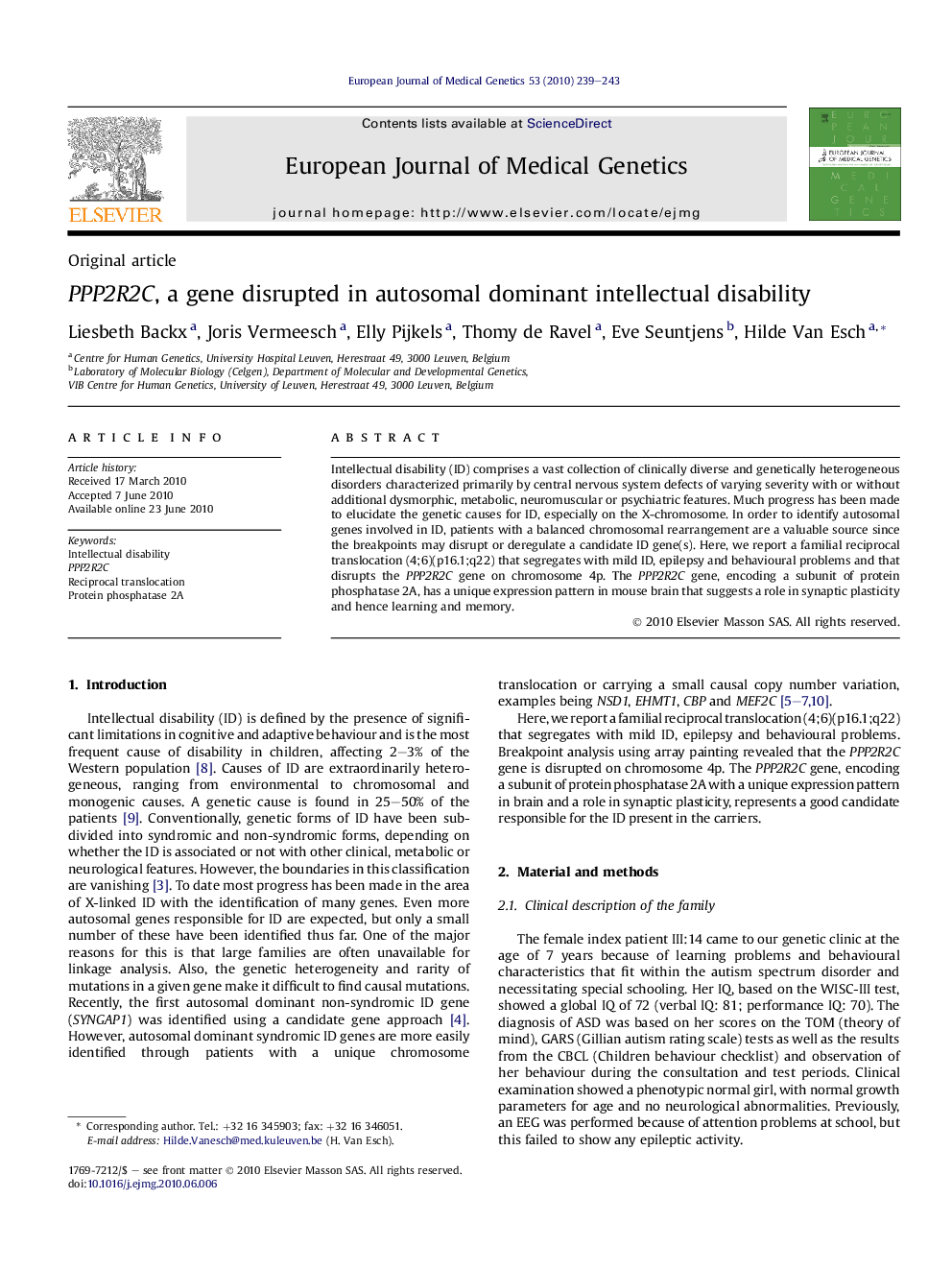| Article ID | Journal | Published Year | Pages | File Type |
|---|---|---|---|---|
| 2814030 | European Journal of Medical Genetics | 2010 | 5 Pages |
Intellectual disability (ID) comprises a vast collection of clinically diverse and genetically heterogeneous disorders characterized primarily by central nervous system defects of varying severity with or without additional dysmorphic, metabolic, neuromuscular or psychiatric features. Much progress has been made to elucidate the genetic causes for ID, especially on the X-chromosome. In order to identify autosomal genes involved in ID, patients with a balanced chromosomal rearrangement are a valuable source since the breakpoints may disrupt or deregulate a candidate ID gene(s). Here, we report a familial reciprocal translocation (4;6)(p16.1;q22) that segregates with mild ID, epilepsy and behavioural problems and that disrupts the PPP2R2C gene on chromosome 4p. The PPP2R2C gene, encoding a subunit of protein phosphatase 2A, has a unique expression pattern in mouse brain that suggests a role in synaptic plasticity and hence learning and memory.
